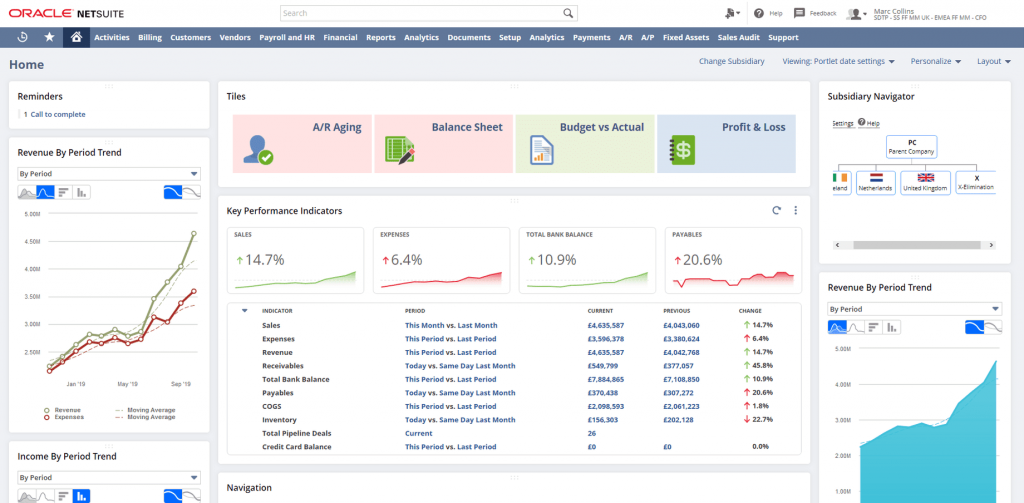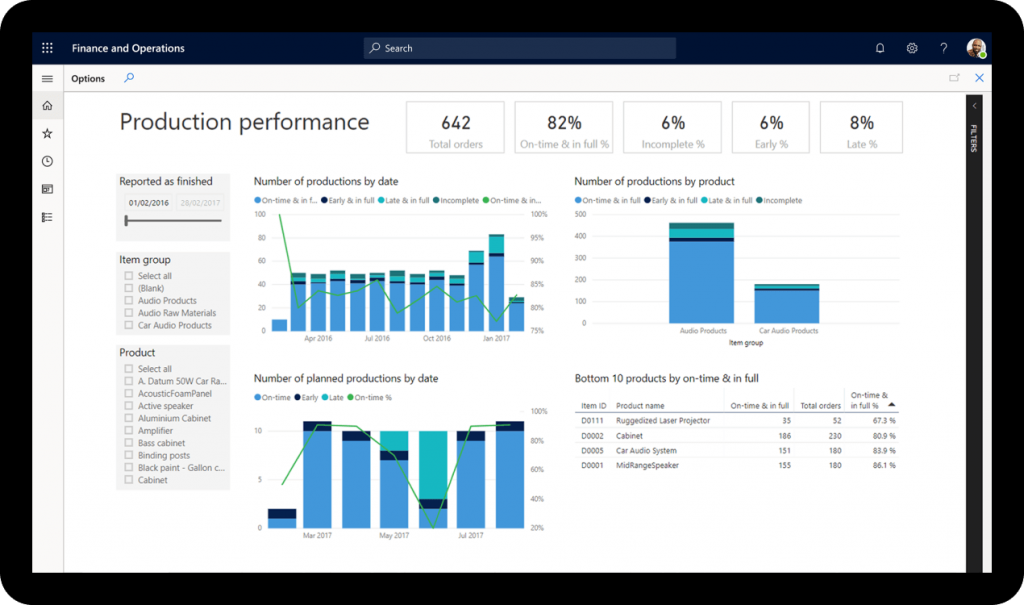Oracle NetSuite vs Microsoft Dynamics comparison
With so many ERP options in the marketplace today, selecting a package for your business can be an overwhelming task. Too often, people select an ERP system based on factors such as price, current technology buzz or the system that is the flashiest.
However, in this review, we will laser focus on what exactly the best features and advantages of Oracle NetSuite vs Microsoft Dynamics.
Top 5 Oracle NetSuite Features

1. True Cloud SaaS
Users typically access the same solution from the same cloud. This gives customers continuous and instantaneous access to the latest product upgrades at the same time.
2. Advanced Billing Schedules
NetSuite automates complicated billing schedules with revenue recognition across a variety of industry use cases that flow through to customer ready invoices.
3. Customizable Platform
NetSuite include a Cloud development platform for scripting, workflow, and extending applications using integration.
4. All in one
NetSuite contains multiple business solutions under one umbrella without any need for integration such as ERP, CRM, Project management, supply chain and HR.
5. Business Intelligence
Data can be analyzed using the Workbook pivot and chart capabilities with easy drag and drop interactions.
Top 5 Microsoft Dynamics Features

1. Manufacturing Focus
D365 is strong in manufacturing and can support the automation of discrete, process, and lean manufacturing companies.
2. Strong Supply Chain capability
Microsoft Dynamics Offers multisite planning, scheduling, shop floor management, quality management, and product configuration.
3. Cheap Licenses for SMEs
Dynamics 365 Finance & Operations offers very reasonable licenses prices for Small enterprises at the beginning of their lifecycle.
4. Linkedin is a microsoft Product
After Linkedin Acquisition, Microsoft has now a native connection between Dynamics CRM and Sales Navigator providing all information on profiles directly into customer records.
5. Control & Compliance
Microsoft Dynamics ensures compliance and internal controls according to standards such as ISO and FDA.
Conclusion
All you need is to identify what exact solutions and automation capabilities required from your ERP system to figure out which solution will work best for its specific needs. Each solution has a broad scope that can be tricky to identify the right one for your company, and properly implement it. we suggest to write down all your needs in a list and ask each solution vendor to answer these requirements in a live demo one by one.

